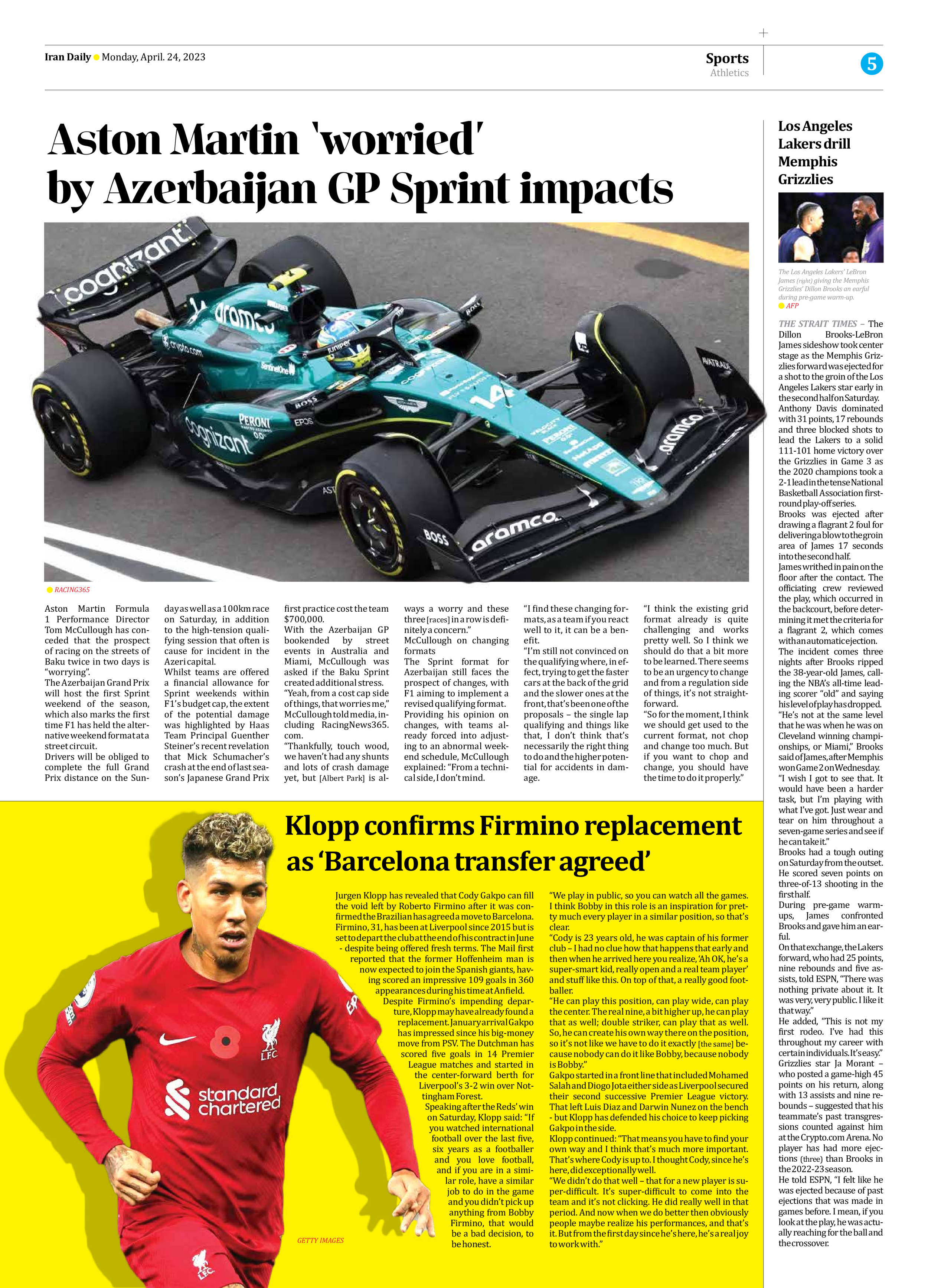
Aston Martin ‘worried’ by Azerbaijan GP Sprint impacts
Aston Martin Formula 1 Performance Director Tom McCullough has conceded that the prospect of racing on the streets of Baku twice in two days is “worrying”.
The Azerbaijan Grand Prix will host the first Sprint weekend of the season, which also marks the first time F1 has held the alternative weekend format at a street circuit.
Drivers will be obliged to complete the full Grand Prix distance on the Sunday as well as a 100km race on Saturday, in addition to the high-tension qualifying session that often is cause for incident in the Azeri capital.
Whilst teams are offered a financial allowance for Sprint weekends within F1’s budget cap, the extent of the potential damage was highlighted by Haas Team Principal Guenther Steiner’s recent revelation that Mick Schumacher’s crash at the end of last season’s Japanese Grand Prix first practice cost the team $700,000.
With the Azerbaijan GP bookended by street events in Australia and Miami, McCullough was asked if the Baku Sprint created additional stress.
“Yeah, from a cost cap side of things, that worries me,” McCullough told media, including RacingNews365.com.
“Thankfully, touch wood, we haven’t had any shunts and lots of crash damage yet, but [Albert Park] is always a worry and these three [races] in a row is definitely a concern.”
McCullough on changing formats
The Sprint format for Azerbaijan still faces the prospect of changes, with F1 aiming to implement a revised qualifying format.
Providing his opinion on changes, with teams already forced into adjusting to an abnormal weekend schedule, McCullough explained: “From a technical side, I don’t mind.
“I find these changing formats, as a team if you react well to it, it can be a benefit.
“I’m still not convinced on the qualifying where, in effect, trying to get the faster cars at the back of the grid and the slower ones at the front, that’s been one of the proposals – the single lap qualifying and things like that, I don’t think that’s necessarily the right thing to do and the higher potential for accidents in damage.
“I think the existing grid format already is quite challenging and works pretty well. So I think we should do that a bit more to be learned. There seems to be an urgency to change and from a regulation side of things, it’s not straightforward.
“So for the moment, I think we should get used to the current format, not chop and change too much. But if you want to chop and change, you should have the time to do it properly.”







